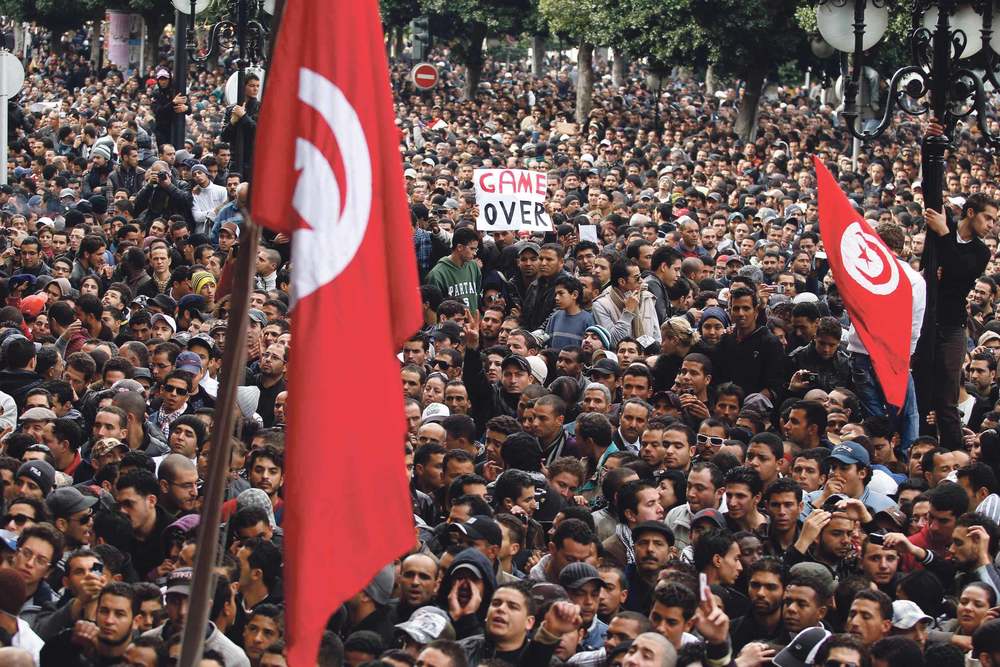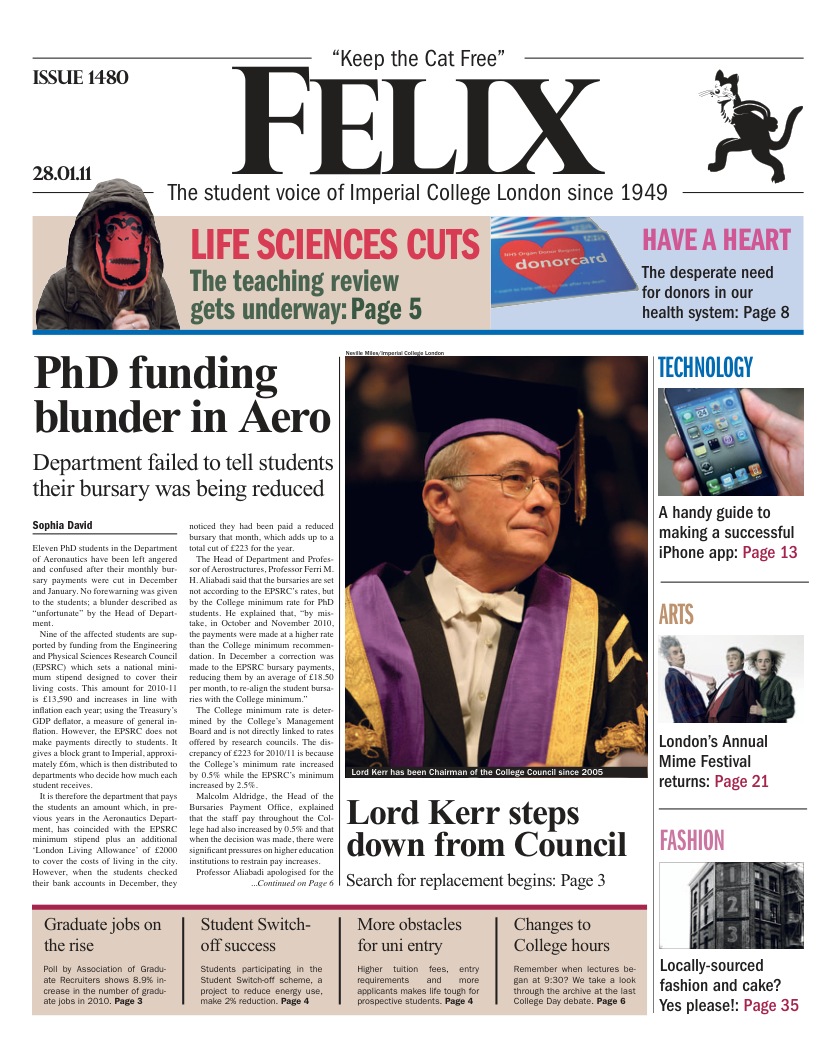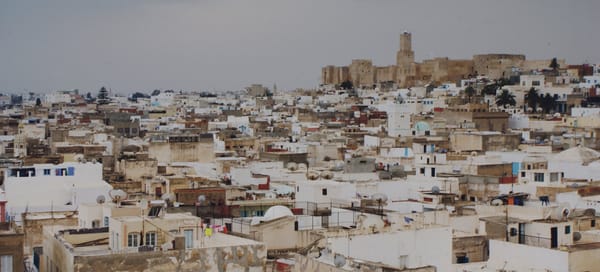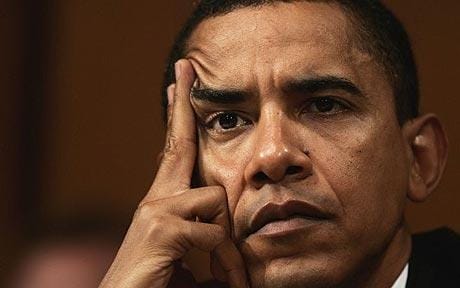Tunisia’s revolution: the first of many?
The overthown Tunisian Government as people come to streets.

On the 17th December 2010 Mohamed Bouazizi went to the office of his regional governor, drenched himself in petrol and set himself alight. He succumbed to his horrific injuries and died some days later. As a twenty six year old high school graduate he was relatively well educated yet despaired at the lack of opportunities for more-than-menial work. Local government officials made his life a misery, repeatedly harassing him and subjecting him to public humiliations. A street vendor for many years, the final straw came when they began confiscating his wares after demanding a license which they knew not to exist. Described by his family as a quiet and softly spoken man, his death was the result of a psychological breakdown brought on by years of submissively accepting injustice at the hands of a governmental system so corrupt and extensive that it interfered with the daily lives of many of its citizens who, beleaguered by poverty, were just trying to make ends meet.
His seething anger at his situation was shared by many others and manifested itself in a month of rioting and violence which has erupted across Tunisia. The wrath of so many common people has brought the autocratic government to its knees and sent “President” Ben Ali fleeing for his life; only the second man to rule the country since 1956.
The question on the minds of many, no doubt including the other puppet presidents, kings and emirs who rule the Arab world is whether or not this unrest will spread. Mass protest is uncommon in the Middle East and is in general illegal or restricted. State run security agencies mercilessly punish those involved and repression is swift and brutal. For many Arabs, especially those living with some financial security in less harsh regimes, the stakes in the struggle for democracy are far too high. However, as the economic crisis bites, millions of Arabs are struggling with soaring food and fuel prices that make our VAT increase seem rather paltry. As mentioned in Time earlier this week, economic despair strips citizens of their fear. An example many will be watching is that of Jordan. One of the safer and more stable Arab countries, it has been relatively free of unrest in recent decades. But with unemployment reaching a staggering 30% (double the official figure) it is more difficult than ever to predict what lies in store and thousands have been protesting at the rising food prices and unemployment.
All this presents an unsavoury dilemma for policy makers in the rest of the world. It is not just a question of the oil reserves which we are all so evidently dependent on. The simple fact is that although many of our western leaders call for democratic reform in the Middle East, these are generally hollow cries. The results of true democracy could be tough to swallow. A despotic king who can be persuaded to share his oil in exchange for financial gains is often a safer bet than a radical Islamist regime which would benefit no one. The result is that countries such as Dubai form the acceptable face of Arab autocracy. The way in which their lavish, opulent and stupid construction projects and their endless shopping malls, greed and gluttony are rebranded as some sort of new Arab sophistication is a remarkable feat of marketing and spin. Less often do we hear of the living conditions of the South Asians who construct these palaces of shit, or the massive abuses of power within.
In truth, these recent events are unlikely to herald a 1989 moment for the Arab world, the vested interests are too deep and the economic factors which are inflaming the situation will not last forever. But no system is perfect, and it may be the case that a few Arab leaders will be a little less relaxed as they continue to sip from their poisoned chalices.








